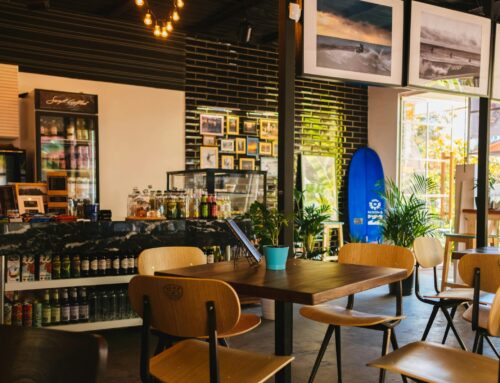For many businesses, the COVID-19 pandemic started as a short, forced break. However, restaurant and bar owners soon learned that everything changes and adapting became a normal mantra. For a very long time, everything facet of the hospitality industry was negatively affected, to the point that many owners were forced to go out of business as the forced break extended longer than anyone could have expected.
Currently, every state is approaching the situation differently, and the mandated regulations seem to change week by week. This has highlighted the need for change while other issues have shown society’s need for their services. Some places have opened back up and are almost running normally, while other locations require some specific precautions.
No one expected COVID to last as long as it has, but that doesn’t change the fact that the hospitality industry still has to adapt and make changes.
The Need for Hospitality Services
The sector for hospitality businesses includes restaurants, bars, hotels, recreation facilities, sporting events, art and entertainment venues. Many people have relied on these services to get their food, talk to people, relax, and cope with life’s challenges.
In 2017, small businesses made up 99.5% of hospitality work and employee 60.6% of the employees in the industry. The country relies on hospitality services for more than just luxury vacations. It is important for the wellbeing of many people in various ways.
Unfortunately, as the virus spread, these locations became the hot spots because they are the most common places people gather.
And this led to some very unfortunate trends throughout the industry. Especially for those who worked in this sector.
According to the National Institutes of Health, “Since February 2020, US hotels have lost in excess of $46 billion, and 4.8 million hospitality and leisure jobs have been lost.”
Creativity is Key
Companies had to get creative in the way they conducted business, and many of those changes persist to this day. Functioning under changing guidelines forced owners and employees to adapt, and for some companies, that meant creating and establishing a protocol for takeout meals. Others had to creatively schedule their room bookings, tours, or seating arrangements to allow social distancing and natural disinfection requirements.
Some businesses had to learn new technologies while others changed their marketing plans to show how they were taking all the necessary precautions.
The hospitality industry is already a competitive endeavor, and it still requires creativity to deal with local regulations, concerned customers, and an uncertain future of new variants and new fears and questions about who is liable for what.
Employee Support
There have been many revelations over these last couple years about how the hospitality industry is staffed with the most vulnerable people in high-risk areas. The following factors are what make this industry so vulnerable when uncontrollable events occur:
- Income Security: Many workers in the hospitality industry make low wages that are increased through tips. Without access to tips and so many businesses shutting down for various amounts of time, employees needed access to extra funds for maintaining basic needs like housing. Some of this may have been covered in workers’ comp policies, or they may have needed to rely on government programs for some kind of security.
- Career Support: Through shutting down, employees learned they have an increased need for career support like childcare, transportation services, and educational opportunities.
- Fewer health benefits: Some employees in the hospitality industry receive health benefits, but many do not. During a global pandemic, the healthcare system has exposed some gaps, showing that more people need access to health benefits. This is especially true for those with income insecurity.
- Highly infectious areas: Health experts and government agencies have focused shut-downs and regulations on businesses with the most potential for becoming a hot spot of infection. These areas are all where people gather and spend a large amount of time, which are almost entirely hospitality-related businesses.
The pandemic has shown businesses and society that there are gaps in employee support throughout the hospitality industry.
Building Resistance
While the public builds resistance to the virus, restaurants and other service businesses have built their own resistance for staying in business against the odds.
The country and world learned that there is a strong desire to mingle with friends over food, travel, seek entertainment, and come together to support their community. This has led to increased re-openings and aversions to new shut downs in order to create these opportunities to be social, but there’s no telling what the future will hold.
If you work in the hospitality business and need some expert advice, there is help. D&O Liability insurance companies have experts that can help advise on costs, risks, and changes in legislation. If you need a great general liability insurance company to work with, consider Tabak Insurance Agency.




